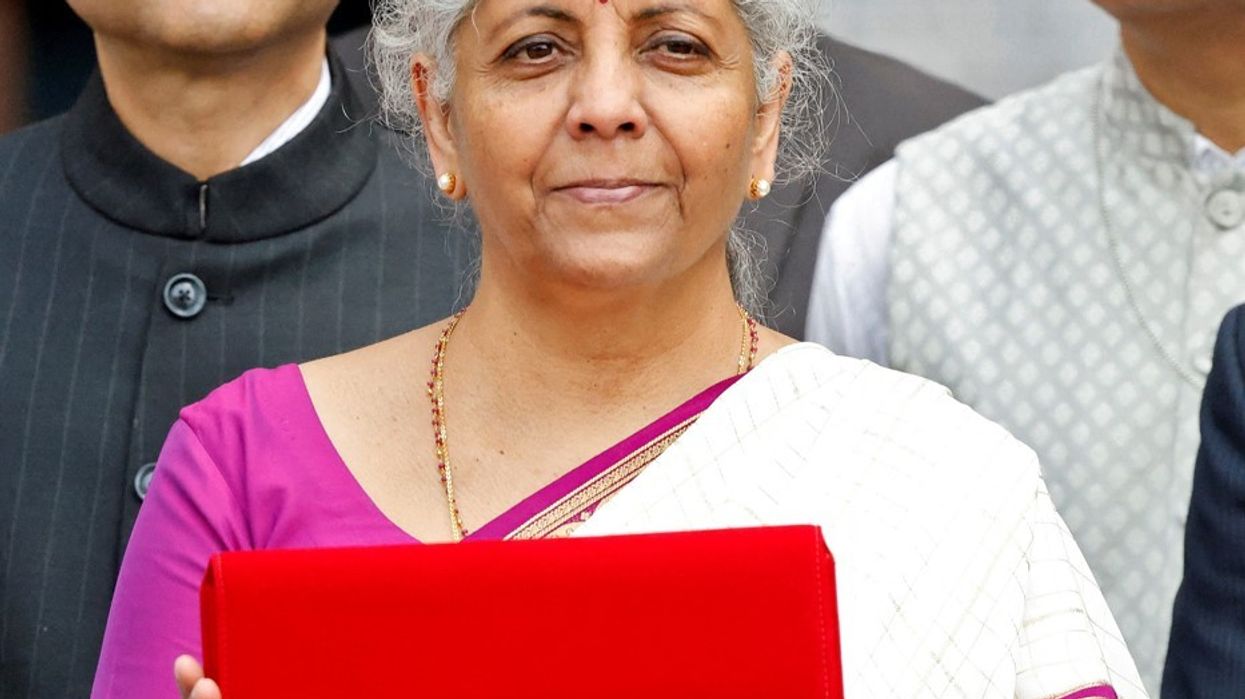The Indian budget presented by finance minister Nirmala Sitharaman on Tuesday has been well-received by the UK business and investor community. Key proposals include a reduction in the corporate tax rate for foreign companies from 40 per cent to 35 per cent and the removal of the "angel tax."
Experts noted that the projected decline in India’s fiscal deficit, estimated at 4.9 per cent of GDP for the current financial year, is expected to boost "foreign investor sentiment" towards the Indian economy. Additionally, India's 8.2 per cent growth in the previous financial year and efforts to create jobs and improve skills were highlighted as significant factors for UK businesses.
Anuj Chande, partner and head of the South Asia Group at Grant Thornton, commented, “Overall, I would say it's a positive budget for the Indian economy. There have been some really positive measures, particularly on infrastructure and supporting the agricultural economy.”
Chande also said, "There were a couple of announcements which I think will help the UK-India corridor: one was the reduction in the corporate tax rate for foreign companies, which is excellent news. And, going the other way around, is the ability of Indian companies being able to use rupees for foreign investment. These will have a very specific impact on cross-border investment between the two countries.”
Richard McCallum, CEO of the UK India Business Council (UKIBC), described India as the “most exciting economic story in the world right now.” He added, "The corporate tax reduction is a welcome step for UK companies to come and invest in India and the announcement around simplification of foreign direct investment (FDI) rules will make India a more attractive destination for global investors.”
McCallum further noted, "UK companies are eager to co-create and partner with India. I think India has probably the best ROI (return on investment) per pound for R&D spend anywhere in the world; so we see this as a very positive step. And, skills and employability was a clear theme in the budget...from a UK perspective, UK universities are looking at how to engage with India and I think that they can be part of the solution in terms of India's skilling requirement.”
Priya Guha, chair of the FICCI India-UK Industry Advisory Group, said, "The 2024-2025 union budget presented by the Indian government is a forward-looking blueprint that significantly enhances the investment climate for UK businesses operating in India.”
Members of FICCI UK's India Advisory Group found the budget “pragmatic and purposeful” in advancing a growth agenda. Suchit Punnose, CEO of Red Ribbon Asset Management, commented, "It is currently the fifth-largest economy and it's to become the third-largest economy and that can be achieved by doubling its current GDP to £5.47 trillion. The investment in mainly defence, rural development, agriculture and home affairs will all bring about a significant boost for jobs and also bring about opportunities for both FPI (foreign portfolio investments) and FDI (foreign direct investments).”
Punnose added, "We do believe that this Budget brings about the most conducive environment required to invest and now is a very good time to invest in the Indian economy.”
Nadia Sood of fintech CreditEnable, a member of the FICCI UK India Advisory Group, emphasised the importance of the Micro, Small and Medium Enterprise (MSME) sector. She said, “India's MSME sector is growing at a CAGR of 2.5 per cent. The move by the government to introduce Mudra Loans to increase the threshold from £7,560 to £15,120, the introduction of a £73.7 million credit guarantee scheme for manufacturing MSMEs, and the strengthening of intermediation platforms that help facilitate access to finance are excellent moves.”
Sood also noted, "Schemes benefiting women and girls to help upskill them and introduce them into the labour market and help them develop entrepreneurial activities are also significant and important.”
Prem Barthasarathy, founder and managing partner of Pontaq, a UK-based venture capital fund, predicted increased foreign investment due to the removal of the angel tax. He said, “With the Angel Tax gone we'll see a lot more investors wanting to invest and back innovative companies in the ecosystem without having to worry about a tax chit that comes later. This is important for the economy because we have about 12,000-plus patents that have been filed in the last few years, and that is only expected to grow; some of these R&D-based technology companies require a lot more initial capital and there will be a lot more investment coming in.”
Arbinder Chatwal, assurance partner and head of India Advisory Services at BDO UK, said, “Investment opportunities such as in infrastructure, healthcare, or digital services or financial services can create new avenues for UK businesses. Despite potential areas of collaboration, challenges such as regulatory complexities, trade barriers, and geopolitical factors could impact the relationship. Both countries will need to navigate these challenges while leveraging opportunities presented in India's Budget measures.”
(With inputs from PTI)





